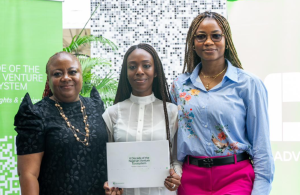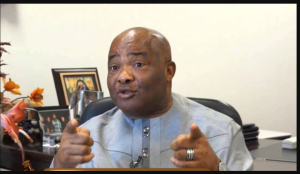
How CSR can help in Achieving SDG 4 Target

Sustainable Development Goal 4 (SDG 4) aims to ensure inclusive and equitable quality education for all, from early childhood education to tertiary education. Education is critical to reducing poverty, promoting economic growth, and achieving sustainable development. However, there are significant challenges in ensuring access to quality education in many parts of the world, including India. Corporate philanthropy can play a vital role in achieving SDG 4 targets, and this article will examine five ways that it can help.
1. Investing in Educational Infrastructure
Lack of adequate infrastructure is one of the significant challenges in ensuring access to quality education in Nigeria. Many schools in rural areas, even in urban centres lack proper facilities such as classrooms, libraries, and laboratories, which can impact the quality of education. Corporates can support the development of educational infrastructure by building schools, libraries, and computer labs. They can also support the renovation of existing educational facilities, providing access to safe and comfortable learning environments for students.
2. Supporting Teacher Training and Development
Teachers play a crucial role in ensuring quality education. However, many teachers in Nigeria lack the necessary skills and training to teach effectively. Corporate philanthropy can support teacher training and development programs to equip them with the skills necessary to provide quality education. These programs can be in the form of workshops, training sessions, or online courses.
3. Supporting Digital Education
The COVID-19 pandemic has highlighted the importance of digital education. With the closure of schools, students have had to rely on online classes to continue their education. However, many students, especially those in rural areas, lack access to digital devices and internet connectivity. Corporate philanthropy can support digital education initiatives by providing digital devices and internet connectivity to students, teachers, and schools.
4. Promoting Vocational Education and Training
Vocational education and training (VET) can provide students with the necessary skills to enter the workforce and promote economic growth. However, VET programs in Nigeria are often overlooked and underfunded. Corporate philanthropy can support VET programs by providing funding, infrastructure, and resources to vocational schools and training centres. Additionally, companies can provide internships, apprenticeships, and other work-based learning opportunities to students.
5. Supporting Inclusive Education
Inclusive education is critical in ensuring that every student, regardless of their background or ability, has access to quality education. However, many students in Nigeria face barriers to education due to factors such as disability, poverty, or discrimination. Corporate philanthropy can support inclusive education initiatives by providing funding, infrastructure, and resources to schools and organizations that promote inclusive education. Additionally, companies can provide scholarships and financial assistance to underprivileged students.
In conclusion, achieving SDG 4 in Nigeria requires a concerted effort from all stakeholders, including the government, civil society organizations, and the private sector. Corporate philanthropy can play a crucial role in promoting inclusive and equitable quality education by investing in educational infrastructure, supporting teacher training and development, promoting digital education, supporting vocational education and training, and promoting inclusive education. By collaborating with other stakeholders and leveraging their resources, companies can help address the challenges in the education sector and help achieve SDG 4 targets. However, it is essential to note that corporate philanthropy should not be a substitute for government action in addressing the education sector’s challenges. Instead, it should complement government efforts and help accelerate progress towards achieving SDG 4.











Your post is a game-changer; it challenged my perspective.